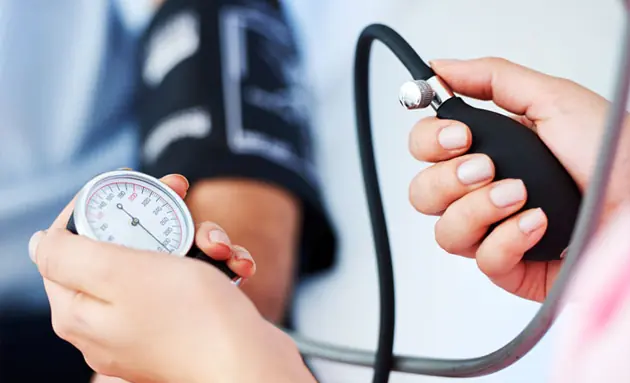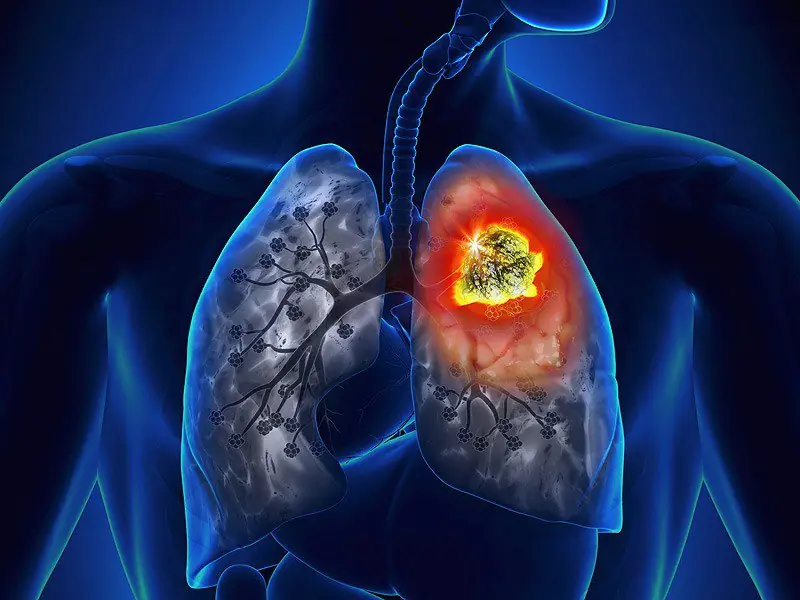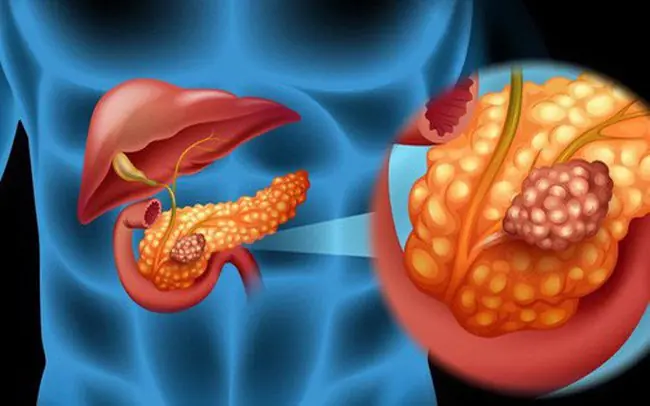
4 Types of Medications That Should Not Be Taken Frequently: They Weaken the Immune System

According to incomplete statistics, about 61.8% of the elderly in China suffer from various degrees and types of diseases, with hypertension, high cholesterol, and multiple chronic diseases being the most common.
People rely on food for sustenance, and it is natural to fall ill occasionally. When experiencing discomfort, many choose to take medications to relieve their symptoms.
However, if medications are not used cautiously and correctly, the body may not be able to maintain a healthy state. So, which types of medications, when taken long-term, can weaken an individual’s immune system and resistance? Let’s explore this below.
4 Consequences of a Weakened Immune System
1. Accelerated Aging
People with weakened immunity are more susceptible to illnesses, especially during seasonal changes, which can easily lead to colds and accelerate aging.
Data shows that aging becomes more apparent with increasing age. To delay aging, enhancing the body’s immune system is essential.
2. Increased Frequency of Colds
Individuals with low immunity are more prone to infections, particularly during weather transitions, which can lead to frequent colds and accelerate the aging process.
To reduce the frequency of illness and slow down aging, one must focus on improving immune function.
3. Higher Infection Risk
When immunity is low, the body’s resistance to various viruses and bacteria decreases, making infections more likely. Additionally, once infected, recovery becomes difficult, and relapses are common.
4. Weak Digestive System
The digestive system is a good indicator of overall health. Frequent issues such as indigestion, bloating, and diarrhea may indicate poor immunity.
Children experiencing loss of appetite and elderly individuals showing signs of nausea, aversion to oily foods, and bloating may have weakened digestive tolerance linked to low immunity.
How Frequent Medication Use Affects the Body
1. Increases Complications
Hypertension patients require long-term antihypertensive medications to stabilize blood pressure. However, while these medications lower blood pressure effectively, they do not address the root cause and may increase the risk of complications.
Long-term use of antihypertensive drugs can make blood vessels more fragile and may harm vital organs such as the heart, brain, liver, and kidneys, even posing life-threatening risks.
2. Develops Drug Resistance
Prolonged use of medications in large doses can lead to dependency. For example, when a person takes a specific antibiotic for an extended period, pathogens may develop resistance, reducing the drug’s effectiveness.
In such cases, normal doses of the antibiotic may no longer have the desired antibacterial effect.
3. Damages Liver Function
People with cardiovascular diseases often require long-term medication. However, over time, they may notice a decline in their overall health.
Long-term medication use can severely impair liver function because many cardiovascular drugs put stress on the liver, negatively impacting overall health.
4. Lowers Immunity
Certain medications, especially those with strong side effects, such as corticosteroids or chemotherapy drugs, have serious consequences. These drugs can significantly lower immunity and reduce white blood cell counts, making the body more vulnerable to infections.
5 Types of Medications That Should Not Be Taken Frequently
1. Statins
Frequent use of statins requires caution as they can weaken immunity. While statins help lower blood cholesterol, long-term use may reduce vitamin D levels in the body, impair calcium absorption, and affect overall health.
To counteract this, supplementing with vitamin D is necessary. Despite their benefits, statins should be taken with caution, and proper nutrition should be ensured.
2. Compound Licorice Tablets
These medications contain glycyrrhizic acid, which is effective in relieving cough and reducing phlegm. However, long-term use can lead to the conversion of glycyrrhizic acid into glycyrrhetinic acid in the body, increasing the risk of hypokalemia (low potassium levels).
Potassium is essential for cellular metabolism. A deficiency can cause nausea, vomiting, and long-term effects that weaken the body's equilibrium.
3. Painkillers
Painkillers are commonly used for ailments like toothaches, abdominal pain, and stomach pain. While they effectively relieve pain, prolonged use can harm the body.
Frequent use of painkillers can severely damage immune cells, leading to dependency over time. It is recommended to use these medications strictly under medical supervision to prevent irreversible damage.
4. Short-Acting Antihypertensive Drugs
Hypertensive patients should be well-informed about this. Short-acting antihypertensive drugs should only be used in emergencies and not for long-term treatment, as prolonged use can place a heavy burden on the body.
For those with hypertension, prioritizing rest and choosing mild antihypertensive medications is advised. While short-acting drugs provide immediate relief, their long-term health consequences are irreversible.
5. Corticosteroids
People with allergic tendencies are familiar with corticosteroids, such as dexamethasone and hydrocortisone creams, often used for dermatitis and urticaria.
Corticosteroids have powerful anti-inflammatory and immunosuppressive effects, commonly used for various inflammatory and rheumatic diseases. However, long-term use suppresses the body's normal immune function, leading to weakened immunity.
3 Important Tips for Safe Medication Use
1. Avoid Mixing Medications
Medications have various properties, including pharmacological, chemical, and biological effects. Combining multiple drugs may enhance or weaken their effectiveness.
Additionally, chemical reactions between medications may lead to toxicity. If a single medication can effectively treat a condition, avoid using multiple drugs simultaneously.
2. Choose the Most Suitable Administration Method
The method of administration should be determined based on the severity of the condition, the purpose of treatment, and the nature of the medication. For critical conditions, intravenous injection is preferable.
For vaginal infections, suppositories are commonly used, while oral medications are suitable for treating intestinal infections, gastritis, stomach ulcers, and parasitic infections.
3. Drink 200ml of Water When Taking Medication
Avoid taking medication without sufficient water or with only a small sip, as this may prevent the drug from reaching its intended destination, causing it to linger in the esophagus.
This may lead to excessive irritation of the esophagus, affecting its health and function.
News Post


A 59-Year-Old Man Ate Raw Garlic Daily for Its Antibacterial and Anti-Tumor Properties—What Happened to His Health After Six Months?

If Budget Allows, Include These Nutrient-Rich Foods in Your Diet to Boost Immunity and Maintain Health!

Doctor’s Warning: Avoid Eating Celery with These Foods – It May Harm Your Health, and Many People Don’t Know It

Is Oral Cancer a Result of Ignoring Symptoms? 6 Warning Signs You Shouldn’t Overlook

Turn Overripe Tomatoes into Flavorful Tomato Powder Instead of Waste

Dates & Papaya: A Powerful Duo for Your Health

Avocado Seeds: 7 Powerful Reasons to Stop Throwing Them Away

Is Lung Cancer Contagious? Can It Be Inherited? A Doctor Reveals the Truth

Say Goodbye to Flies and Cockroaches in Just One Hour with This Simple Trick!

Garlic, Honey, and Cloves – A Powerful Natural Remedy for Better Health

5 Essential Leaves to Naturally Enhance Eye Health

Doctor’s Warning: People Prone to Pancreatic Cancer Tend to Share These Common Traits – Here’s What You Need to Know

The Drink That Will Empty Hospitals in 2025 – Cures Diabetes, High Blood Pressure, and Cancer Without Medication

Blueberry Banana Smoothie – A Creamy & Nutritious Delight!

Oatmeal Blueberry Smoothie – A Creamy, Nutritious Breakfast in a Glass!

Cattails: Nature’s Hidden Treasure for Nutrition and Survival

Carrot Pineapple Smoothie – A Refreshing & Nutrient-Packed Drink!

Pineapple Mango Smoothie – A Tropical Delight!
